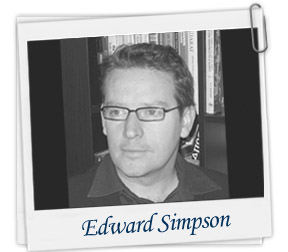 Edward Simpson is a lecturer in social anthropology at SOAS, London. He gained a first class degree in Social Anthropology from the University of Manchester and went on to complete a PhD in Anthropology from the London School of Economics and Political Science (LSE). He is currently involved in researching post-disaster reconstruction in India and Sri Lanka.
Edward Simpson is a lecturer in social anthropology at SOAS, London. He gained a first class degree in Social Anthropology from the University of Manchester and went on to complete a PhD in Anthropology from the London School of Economics and Political Science (LSE). He is currently involved in researching post-disaster reconstruction in India and Sri Lanka.
Before applying to university I had two gap years. I travelled through North Africa and cycled from Calcutta to Istanbul. While at the University of Manchester, I became interested in the rights of indigenous people and became the student representative for Survival International. Then, after my degree, I decided to go travelling again, this time through India and the Middle East.
I spent six months in India working with a voluntary organisation called Indian Volunteers for Community Service, where, first, I was given basic training as a development worker. They taught us the ‘local customs’ and how to behave without offending people in the community, before giving us a development placement – which in my case was by the Narmada Dam in Gujarat. The dam took fifty years to build, and blocks the Narmada River. Its construction has displaced over one hundred and fifty thousand people. Working on this placement, I found an affinity between what I knew of anthropology and the aims and objectives of the local development organisations who were concerned to resettle people affected by the dam.
When I returned to the UK, I took up an Economic and Social Research Council studentship at the LSE to study for my PhD. That research took me back to western India, to a town called Mandvi in Gujarat. When I was at school I’d wanted to train as a ship builder, but I failed to get a ship-building apprenticeship and my parents had gently persuaded me to stay on and apply to university. In Mandvi, I worked in the shipyards and learnt, ‘hands on’, about building the ships used to trade in the waters of the Indian Ocean. They are 30-40 metres long and handcrafted from wood. I wrote my PhD largely on this experience of shipbuilding, but also on the techniques of apprenticeship and broader Muslim politics in the Indian Ocean. Anthropology can be like that; you can often use one topic to write about something else.
Since my PhD, I’ve authored and edited two books on migration and the Indian Ocean. I held post-doctoral fellowships at the LSE and then took up a teaching position at Goldsmiths College before moving to SOAS. With further funding from the ESRC, I have started to work on issues of post-disaster reconstruction in Asia, especially in relation to the earthquake in Gujarat during 2001 in which around 14,000 people died.
There is so much scope in anthropology to discover other interests, and the skills you learn can lead to a whole range of other kinds of employment. For example, I know people trained as anthropologists who now work for Nokia, Microsoft and in local government. Through anthropology, I’ve managed to pursue something I’ve always wanted to do. My advice to those thinking about studying anthropology is to try and experiment with it, don’t see it as just an academic degree; it can be a way of life rather than a subject.
Anthropology has taught me to think critically and creatively around topical issues, which has been important for both my life and career!

